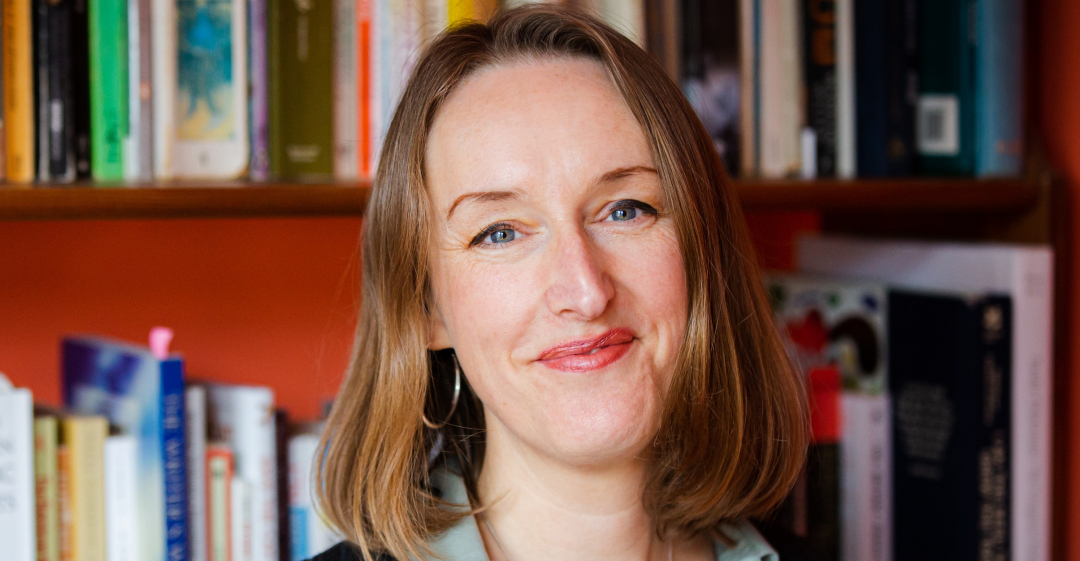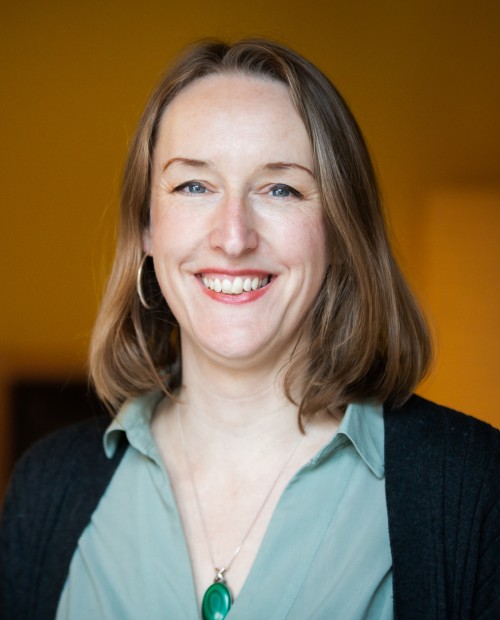“I had this really clear sense of: ‘I don’t need to do this.’”

What work were you doing previously?
I was working in financial data for a large media company.
I started there as a market analyst in my early twenties, and just shot up the greasy pole. Eventually I became global head of fixed income.
What are you doing now?
I run my own company: I’m a writer and writing coach.
I write articles and blogs and stories, and I support other writers on a variety of projects.
Why did you change?
It wasn’t my place.
In a sense, all of that career was an accident.
I stayed for so long because the organisation was very good at caring for me in some senses, and also flattering me with promotions and pay rises.
There’s an element of that world that keeps you so busy and occupied that you don’t have time to ask ‘what do I really want to be doing? Where do I actually want to be in life?’.
When was the moment you decided to make the change?
After I’d been promoted to the global head role, I did a bit of a whirlwind tour and stayed in Singapore for ten days to spend time with the team there.
The work was, on reflection, absolutely insane. I’d get up in the morning and work the Singapore day, and then when Europe came online I’d pick up that work too, running afternoon through to evening. I’d have some dinner and America would be online, so I’d be responding to emails, picking up instant messages with colleagues there too. I’d go to bed at 12pm or 1am, sleep for a few hours, and then wake up and start all over again. I did that on repeat for five days.
On the Saturday morning, before I flew out to India, I had the whole day to myself in Singapore so I did some rapid sightseeing. I was walking through the botanical gardens, and just had this moment.
There’s a thing that happens with burnout when you suddenly get great clarity. I could feel the sunshine and all the sounds around me. It was calm, and beautiful, and incredibly bright. It felt like I was coming back into myself.
I had this really clear sense of: ‘I don’t need to do this’.
It took me a full year after that to leave, but that was the seed.
How did you choose your new career?
My background, and my interest, had always been in literature and writing, but I just happened to be good at numbers as well.
I wanted to devote time to writing – that was the main thing.
How did you go about making the shift?
Part of the reason it took me a year to leave was that I needed to define what my new life would look like.
I knew, whatever way I did it, I wouldn’t be on the same salary. I was fine with that, but I needed to make some specific changes first, and deal with a lot of life stuff.
In amongst all of that, at the end of my time in my old job, my mum became very ill, and I became her primary carer. After she died, I was dealing with grief, and also had to change my plans.
I ended up moving to Bristol into a shared house. I had a 17-year-old kind of mindset at that point, even though I was in my thirties. It was a big party year, and I wrote and did some theatre work part-time. I also met my now husband.
My company, Ridley Writes, emerged out of the work I did around then, but at the start I was still working out how I could make money from it. I ended up doing a lot more marketing-based content work, and it’s taken a number of years to iterate through that into other work.
Are you happy with the change?
Yes, hugely.
It makes me feel brilliant.
Last week I agreed to help on a school trip at the last minute. I wanted to do it, but at the same time I had this real sense of sadness that I wasn’t going to be doing my work that day. It made me think: most people would be quite happy to take a day off work and do something a bit different. But not me!
There isn’t a day that goes by when I don’t think 'wow, I get to do this'.
What do you miss and what don't you miss?
I do miss the people, and working in a multicultural environment made the world feel very relevant.
Whatever was happening in the news, I knew somebody in that country. I felt very connected to what was happening in the world. My world is more local than global now.
I look back on my old career as a sort of jet-set lifestyle, although it didn’t really feel like that at the time.
I don’t miss the salary. I earn enough now, and that’s what you need.
How did you develop (or transfer) the skills you needed for your new role?
I undertook a Masters in Journalism at the University of the West of England (for which I gained a first!).
I did this whilst working part-time, and I also got a careers development loan to help pay for the course fees.
I joined a business coaching group called PR with Heart, which helped me think about my business and my audience.
But otherwise, I’d gained quite a lot of skills before, and a lot of it was repurposing what I already had.
What didn’t go well? What wrong turns did you take?
Very early on I did a part-time job that was something to do with financial markets, and I started to slide down a route that was a bit too similar to before.
It all started happening again. I just went in to earn some money to pay the rent, but then quite rapidly got promoted to Head of Operations.
The universe keeps throwing these things at you to make sure you’ve learned your lessons. The real challenge is just staying really clear on what you actually want to do, and trusting that there is payment for it.
What was the most difficult thing about changing?
Self-doubt.
You don’t know that it’s going to work. Managing and overcoming that has probably been the most difficult thing.
What help did you get? 
Having a coach was really helpful.
She really helped me to see that even though it wasn’t immediately obvious to me HOW I could make my passion my business, it was where I needed to keep putting my attention and intention. It encouraged me to become a writing coach.
I had a lot of mentors through the theatre and arts centre and community work I’d undertaken in my free time, whilst figuring out who I was and what I wanted to do in that year between deciding to leave and leaving.
Friends are a good resource as well – I talked to friends who had worked in and left the corporate sector.
What have you learnt in the process?
At the start, I gave myself away a lot.
In my old career, I never had to think about how I was spending my time. In a way it didn’t matter directly, because the salary came in anyway.
But as a freelancer, you need to be much clearer about the value of your time. That’s taken me a while to recognise. I’ve learned not to undersell myself or give myself away too cheaply.
What do you wish you'd done differently?
On the one hand, I believe that all the things I’ve done have contributed to who I am today.
Equally, there is the me that would revisit the girl in her twenties and tell her to stick with what she was really interested in. I think we give up on ourselves too early on, in terms of our passions.
So if I could go back and tell myself anything, it would be to stick with the writing and keep going: you will get there.
But then I’d be a very different person to who I am now…
What would you advise others to do in the same situation?
Do what interests you, follow whatever interests you, and see where it takes you.
Figuring out who you are and what you want to do is much bigger than just the work you do and the courses you attend around that.
Be really open to things. Don’t expect your journey to be linear: it’s not a straight line, it’s going to take time, and it’s iterative.
And listen to yourself. It’s in the least expected places that clarity of thought will come to you.
To find out more about Rebecca's work, visit www.ridleywrites.co.uk
What lessons could you take from Rebecca's story to use in your own career change? Let us know in the comments below.



